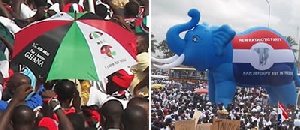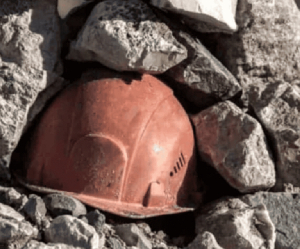Politicians must overcome unbridled partisanship and forge common national agenda, to be able to secure the country’s future, says, Mr. Ralph Avornyo, Volta Regional Director of Ghana Broadcasting Corporation (GBC).
Mr. Avornyo was delivering a lecture on: “The new wave of politicisation of issues of national importance in the country; the implications for the country’s social, economic political development, peace and stability.”
The lecture was organised by the Desiadenyo Club, a non-partisan, non-sectarian and non-tribal social group in Ho to mark its 30th anniversary.
The lecture was attended by students, officials of public institutions and representatives of non-governmental and civil society organisations (CSOs).
Mr. Avornyo said politicians must learn from the examples of the United States, and other Western democracies in order to pull the country away from the unproductive and dangerous precipice of extreme partisanship where issues pertaining to the interest of the general weal is viewed with unwarranted partisan lenses while acting in concert to protect their common interests.
He said in Western democracies common national agenda that best secure their interests are pursued by the political parties no matter which of them is in power.
Mr Avornyo said Ghana, therefore, needs strong CSOs to exert pressure on the political elite and galvanise the body politic to seize the initiative to establish a positive collective nationalistic approach to national issues.
Quoting General de Gaulle of France, Mr Avornyo said: “Politics is such serious a business to be left in the hands of politicians alone.”
Mr Avornyo observed that extreme partisanship in Ghana had its origins from the early independence period and has persisted through every constitutional rule thereby stifling the country’s ability to harness its rich natural and human resources to build a healthy economy of happy people.
He said Ghanaians have thus been forced to live in despondency without respite always hoping for a better future which never came.
Mr Avornyo asserted the 1992 Constitution seemed perhaps inadvertently to promote the extreme partisanship in the formality for vetting of Ministers by Parliament and the approach by Public Accounts Committee.
He said Ghanaians require from politicians to actualise Dr Kwame Nkrumah’s vision “to establish in Ghana, a strong and progressive society in which no one will have any anxiety about the basic means of life, about work, food shelter, where poverty and illiteracy no longer exist and disease is brought under control and where our educational facilities provide all the children of Ghana with the best possible opportunities for development of their potentialities”.
Mr Avornyo said Ghana needs statesmen who submerge self interest and unbridled political ambition in favour of the general good.
Mr Samuel Kwaku Ayisah, President of the Club said it is working towards establishing an Education Endowment Fund to assist “brilliant but poor and needy pupils and students in the Ho municipality”.
He said the Club has also instituted competitions among schools in the municipality to help arrest falling academic standards.
“The Club, over the years, has been supporting some selected schools in the municipality in the provision of teaching and learning materials and infrastructure in order to promote quality education,” Mr Ayisah said.
Politics of Sunday, 22 June 2014
Source: GNA
Unbridled partisanship inimical to Ghana’s future - GBC Director
Opinions












